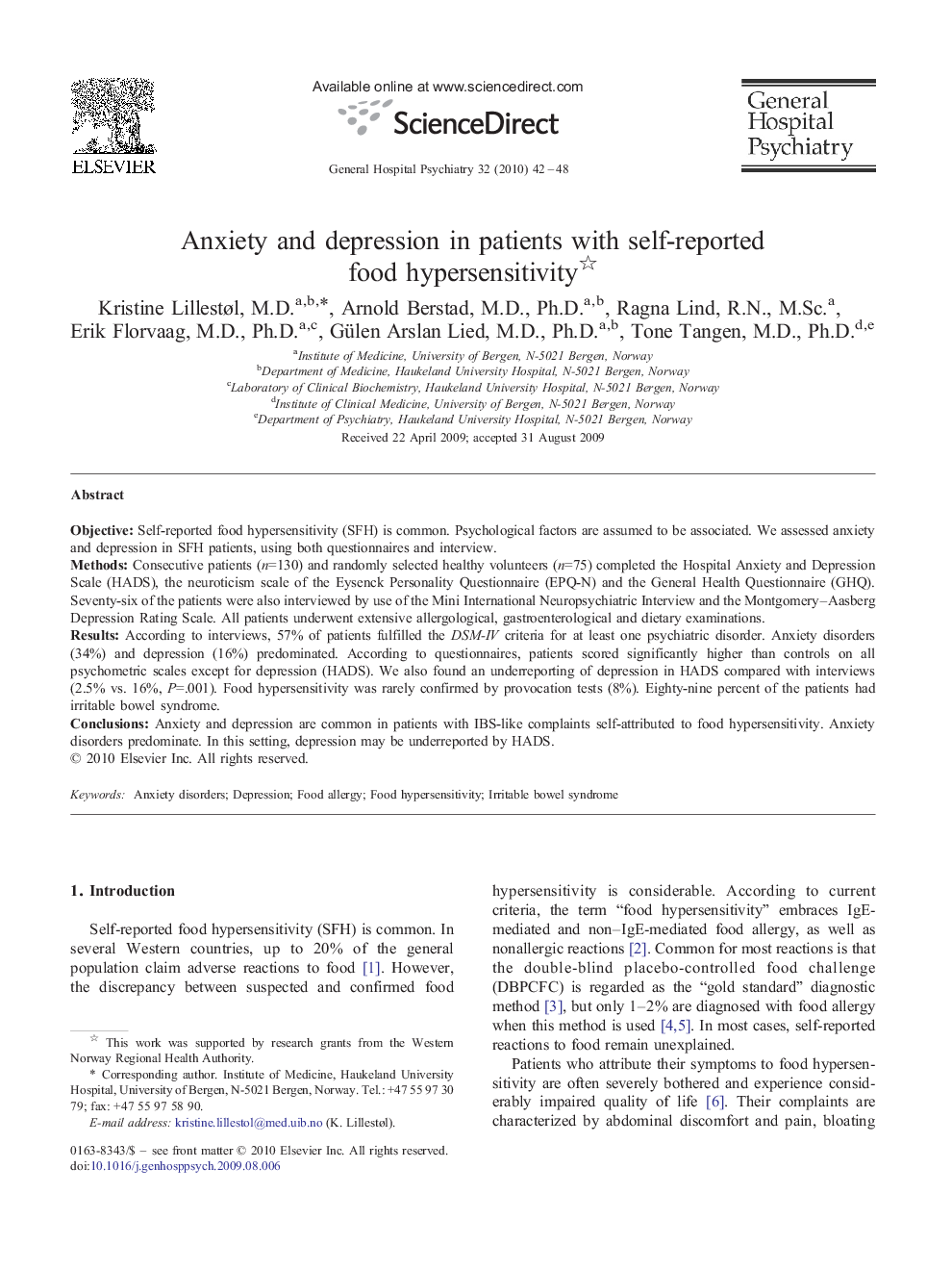| Article ID | Journal | Published Year | Pages | File Type |
|---|---|---|---|---|
| 3238082 | General Hospital Psychiatry | 2010 | 7 Pages |
ObjectiveSelf-reported food hypersensitivity (SFH) is common. Psychological factors are assumed to be associated. We assessed anxiety and depression in SFH patients, using both questionnaires and interview.MethodsConsecutive patients (n=130) and randomly selected healthy volunteers (n=75) completed the Hospital Anxiety and Depression Scale (HADS), the neuroticism scale of the Eysenck Personality Questionnaire (EPQ-N) and the General Health Questionnaire (GHQ). Seventy-six of the patients were also interviewed by use of the Mini International Neuropsychiatric Interview and the Montgomery–Aasberg Depression Rating Scale. All patients underwent extensive allergological, gastroenterological and dietary examinations.ResultsAccording to interviews, 57% of patients fulfilled the DSM-IV criteria for at least one psychiatric disorder. Anxiety disorders (34%) and depression (16%) predominated. According to questionnaires, patients scored significantly higher than controls on all psychometric scales except for depression (HADS). We also found an underreporting of depression in HADS compared with interviews (2.5% vs. 16%, P=.001). Food hypersensitivity was rarely confirmed by provocation tests (8%). Eighty-nine percent of the patients had irritable bowel syndrome.ConclusionsAnxiety and depression are common in patients with IBS-like complaints self-attributed to food hypersensitivity. Anxiety disorders predominate. In this setting, depression may be underreported by HADS.
